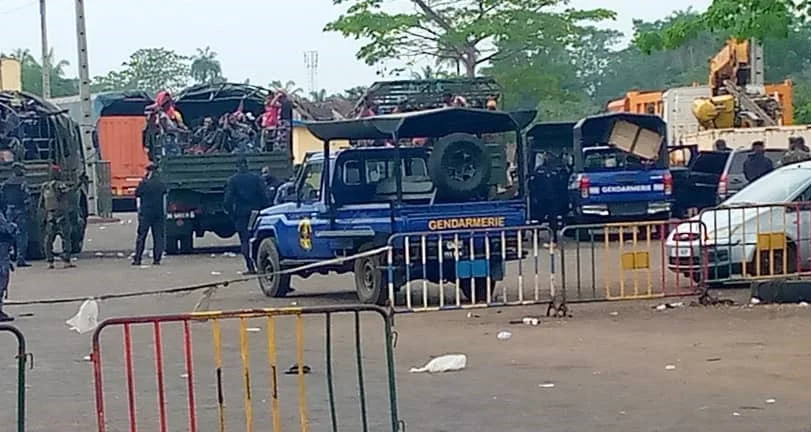The recent deportation of Sierra Leoneans from Guinea has triggered a retaliatory response from the Sierra Leonean government. This reaction has manifested in the arbitrary arrest and deportation of Guineans—or Sierra Leoneans mistakenly identified as Guineans—back across the border. At the heart of these actions lies a troubling trend: the disproportionate targeting of the Fulbhe (commonly known as Fullas). Their distinct physical features make them easily identifiable, rendering them vulnerable to discrimination.
This raises a critical question: Why are the Fulbhe consistently singled out when determining “who is a Sierra Leonean”? Ethnic groups like the Soso and Mandingo share deep kinships and migration patterns across the borders of Sierra Leone, yet they seldom face such scrutiny. History, it seems, is repeating itself. The current government’s actions echo a dark chapter from the 1970s when Fulbhe citizens were similarly rounded up and forcibly sent to Guinea under the pressure of Guinea’s then-dictator, Ahmed Sekou Touré. Proof of their nationality was grotesquely reduced to reciting tongue twisters in Themneh or Mende—languages foreign to many, including native speakers. Why must Fulbhe prove their “Sierra Leoneness” by meeting impossible cultural standards that others are never required to meet?
The root of this issue lies in a fundamental misunderstanding of nationhood versus statehood. Are we confusing the ancient notion of a nation, which transcends borders, with the more recent political construct of a state—a product of the colonial partitioning of Africa in the 19th century?
Anthony Smith, a foremost theorist on nationalism, defines a nation as “a community of common descent bound together by shared values, traditions, myths, and historical memories, often linked to an ancestral homeland.” Nations, therefore, are imagined communities—boundless and inclusive—while states are territorial entities defined by bureaucratic governance and citizenship. Benedict Anderson further asserts that a nation’s borders are those of inclusion and exclusion: Who belongs and who does not? Citizenship, as defined by the state, is not the same as membership in a nation, which hinges on shared language, values, and cultural heritage.
In his book “Beyond Fundamentalism,” Reza Aslan builds on this distinction. Not all nation members are willing to be limited by state boundaries that arbitrarily exclude those with whom they share cultural ties in other geographical regions. The Fulbhes are a case in point. Scattered across Senegal, Guinea, Mali, Nigeria, and beyond, they form a transnational ethnic community. Yet this does not invalidate the Sierra Leonean identity of Fulbhe, who has contributed immensely to the country’s commerce, academia, and religion.
This failure to grasp the difference between statehood and nationhood lies at the heart of Fulbhe’s discrimination. The same inability fragmented Yugoslavia into smaller, ethnically homogeneous states. While Sierra Leone may never face such extreme disintegration, it is imperative to address the underlying issues now rather than revert to performative, reactionary measures like mass deportations.
The deportation of Sierra Leoneans by Guinea, though severe and humiliating, demands a measured diplomatic response. The government should have sent a high-level delegation to Guinea to investigate the scale and reasoning behind these actions. Guinea is not just any neighbouring country. Historically, it has provided refuge to Sierra Leonean leaders, including runaway presidents, and countless citizens during wars and political upheaval. Instead of reflexive retaliation, we must ask: What provoked such mass deportations? What can be done to repair our fractured relationship? Why are Fulbhes the scapegoats in this diplomatic standoff when other ethnic groups also maintain familial and cultural ties across the border?
The paradox is glaring. In recent years, both major political parties have selected Fulbhe candidates as running mates during elections, an acknowledgment of Fulbhe’s significance to Sierra Leone. Yet today, the same group is being rounded up for deportation. This inconsistency speaks to a more profound confusion about identity and belonging.
Every Sierra Leonean has the right to demand dignity and respect. However, our collective responsibility is also to defend that dignity without undermining the state’s cohesiveness. Retaliation cannot be our sole diplomatic tool. Sierra Leone must rise above knee-jerk responses and engage in nuanced diplomacy, honing inclusion, justice, and unity.
We cannot afford to let history repeat itself. The Fulbhes are as Sierra Leonean as the Soso, Mandingo, Themneh, Mende, or any other group. Their heritage is interwoven into the fabric of our nation. The question is not whether Fulbhes “belong” in Sierra Leone but whether we, as a state and as a people, can uphold the ideals of inclusivity and fairness that form the bedrock of any genuinely unified nation. Perhaps we are limiting our understanding of a nation to the definition offered by French theorist Ernest Renan, who described it as “a group of people united by a mistaken view of their past and a hatred for their neighbours.” In our anger over Guinea’s deportation of our compatriots, are we not making the same mistake—misunderstanding who we are and what it means to be Sierra Leonean? Are we not sacrificing our kin to appease our outrage?
Wake up, Mr. President. Wake up, Sierra Leone. We are better than this reductive logic.We can define our identity without using our Fulbhe compatriots as a convenient contrast to what we are not.



If your analogy is true, why is there no problem in identifying Mende people on either side of the Liberian border with Sierra Leone?